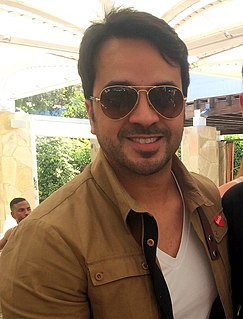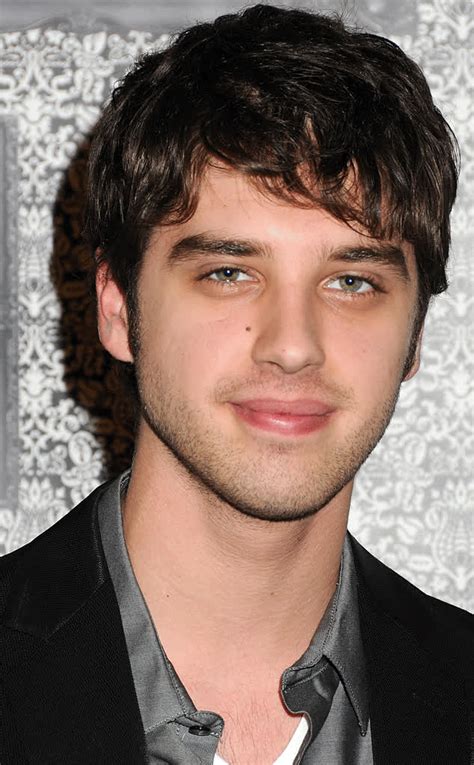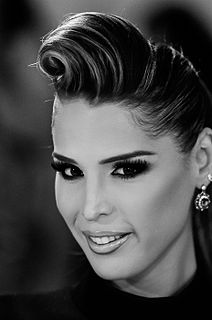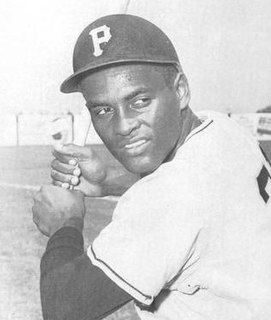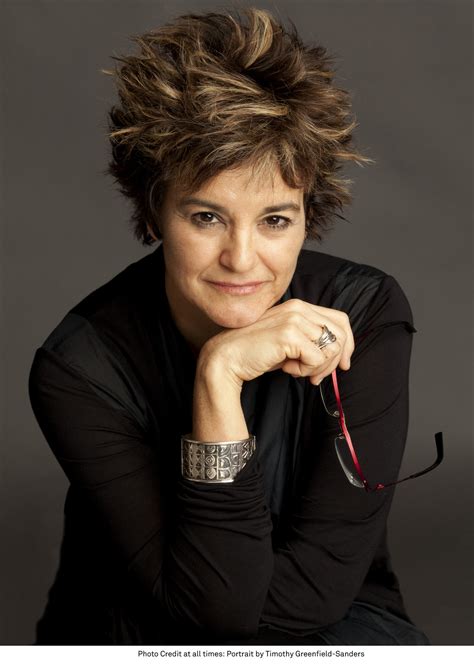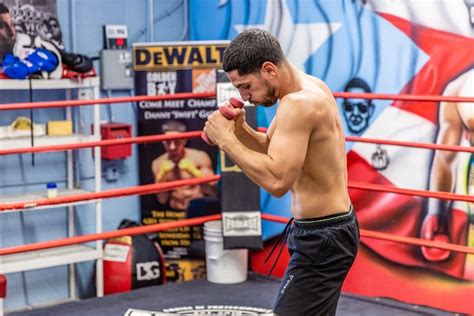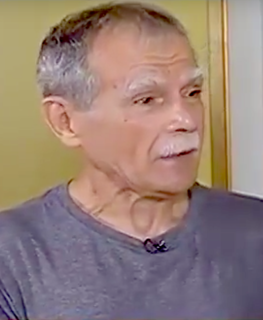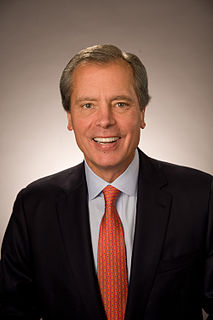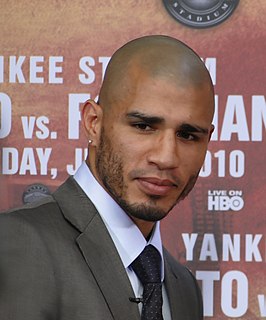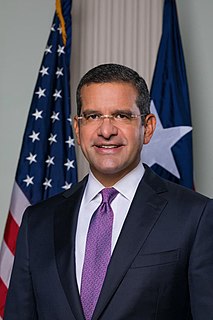A Quote by Luis Fonsi
I am 100% proud Puerto Rican but have lived two-thirds of my life in the United States. So, there will be some things I write in English, but my main way of conversing with my audience is in Spanish because, at the end of the day, I'm a Latino.
Related Quotes
The Documents Project has actively collected documentation on both island-based Puerto Rican art as well as Nuyorican art in the United States through partnerships and researchers ceded at the University of Puerto Rico's museum in San Juan and Hunter College's Center for Puerto Rican Studies in New York City, respectively.
I believe, as a Puerto Rican, that the majority of Puerto Ricans want to be Puerto Ricans. Once we become annexed to the United States or by the United States, that we will lose our national identity. I can look at Hawaii as an example of people who lose, the Natives who lose their identity. I can look into the Native American reservations and see people who lose their national identity, their culture, their language, their land. And that's what's going to happen to Puerto Ricans here.
Puerto Rican independence movement wasn't just rooted in some sort of personal intransigence or some passionate Latino temperament. It was rooted in economic and political reality at the time. It also made sense since the founding principles of the United States are supposedly based on government by the consent of the governed, and the sense that all men are created equal.
I believe that the overwhelming majority of Puerto Rico wants to be Puerto Ricans. I have been in five different states in the United States, and I have found young Puerto Ricans in the states who really love Puerto Rico, who really want to do something for Puerto Rico. And for me, Puerto Rico has to be the promised land of all Puerto Ricans, whether we are in the United States or wherever we are at. But this has to be the promised land. Annexation will never be the answer.
